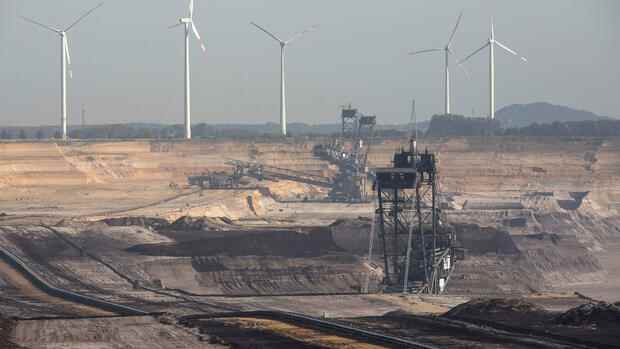Enkraft calls for more dynamism in the restructuring of the energy company.
(Photo: dpa)
Dusseldorf Activist investor Enkraft Capital is pushing ahead with its call for RWE to be split up. Enkraft submitted an application for the Annual General Meeting on April 28th, which provides for the examination of a spin-off of the coal business. On Tuesday, the Essen-based energy company included the application on the agenda.
“It is incomprehensible why the Executive Board and the Supervisory Board have not yet developed and communicated a plausible plan for an early separation of the lignite activities,” Enkraft explains the procedure. The coal/nuclear energy segment is not only “economically negligible and ecologically questionable” for RWE in the long term. A continuation leads to undervaluation on the capital market and hinders the focus of the board on the expansion of the core business with renewable energies.
Enkraft Capital has been demanding the spin-off of RWE’s coal division for a year. Although the investor only holds 0.03 percent of the shares, he always manages to become a topic of conversation with letters to the supervisory board and management board.
The investor argues that the change in the business model from fossil fuels to renewables is not going fast enough. Lignite and nuclear power in particular would become a financial risk for RWE.
Top jobs of the day
Find the best jobs now and
be notified by email.
However, the group is still making a lot of money, especially in view of the rise in energy prices. The coal/nuclear energy segment grew significantly again last year: Adjusted profit rose here from 559 million euros to 889 million.
In order to become more independent of Russia, Federal Economics Minister Robert Habeck (Greens) is also currently examining the continued operation of old coal-fired power plants. In view of the Russian attack on Ukraine, it must be ensured that these power plants are available as a backup, according to a ministry paper. It refers to lignite-fired power plants from the so-called security reserve.
RWE had declared that it would be ready with its power plants if necessary. However, this does not change anything on the coal phase-out path, but could at best be a “step aside for a limited time”, RWE boss Markus Krebber made clear last week.
That’s not enough. “Without replacing the lignite activities, RWE will not be a sustainable company in the foreseeable future,” Enkraft boss Benedikt Kormaier is convinced. The fossil business also caused RWE to be undervalued.
“The phase-out of coal has long been underway, and this means that RWE’s rating is improving by itself,” counters Krebber. With the help of an investment offensive worth billions, the group also wants to expand its green capacities from the current 25 to 50 gigawatts by 2030.
Analysts see RWE on the right track
RWE’s share price has been rising continuously since the end of 2015, and the price has risen by almost 150 percent in the past five years. RWE sees itself confirmed in its strategy to transform a renewables group. Enkraft claims the valuation could be significantly better excluding the coal deal.
However, it could be difficult for the small group of investors to find a majority with their motion at the general meeting. Almost 90 percent of the RWE shares are owned by institutional shareholders. The largest of them is the wealth manager Blackrock with seven percent. However, for a year none of them responded to Enkraft’s proposals.
That could also be because analysts see the company on the right track. Barclays expert Dominic Nash even sees RWE with its renewables portfolio as the most promising candidate in Europe. Together with Orsted, Iberdrola and SSE, the Dax group could achieve a market share of around 40 percent of global capacities from 2030.
However, it would not be the first time that a small group of investors has brought about a change in course for a billion-dollar company. Last June, the hedge fund Engine No.1, with just 0.02 percent of the shares, forced the US oil giant Exxon Mobil to focus significantly more and faster on renewable energies in the future.
More: “Unforeseen consequences for households”: RWE boss warns of energy embargo against Russia


